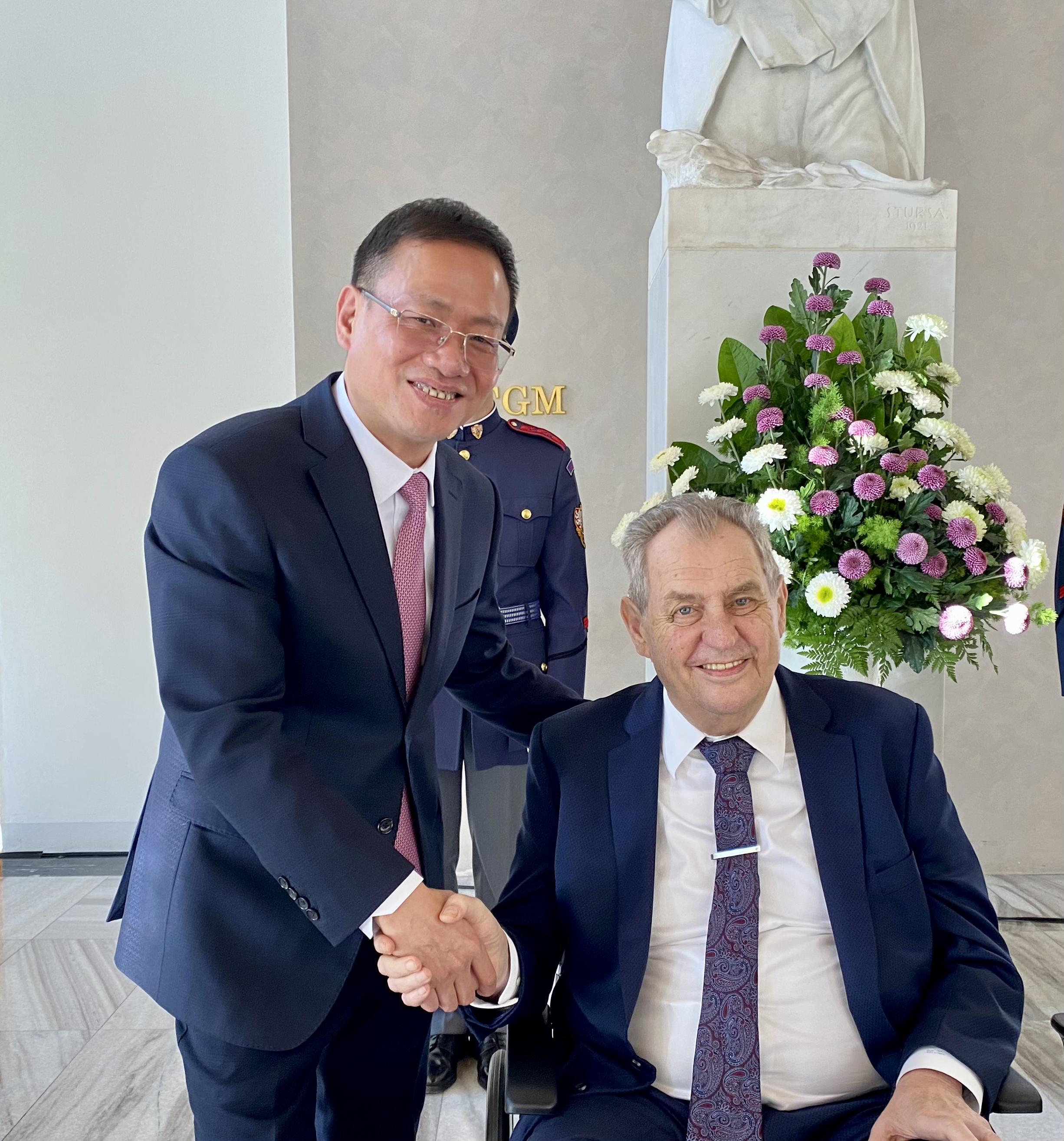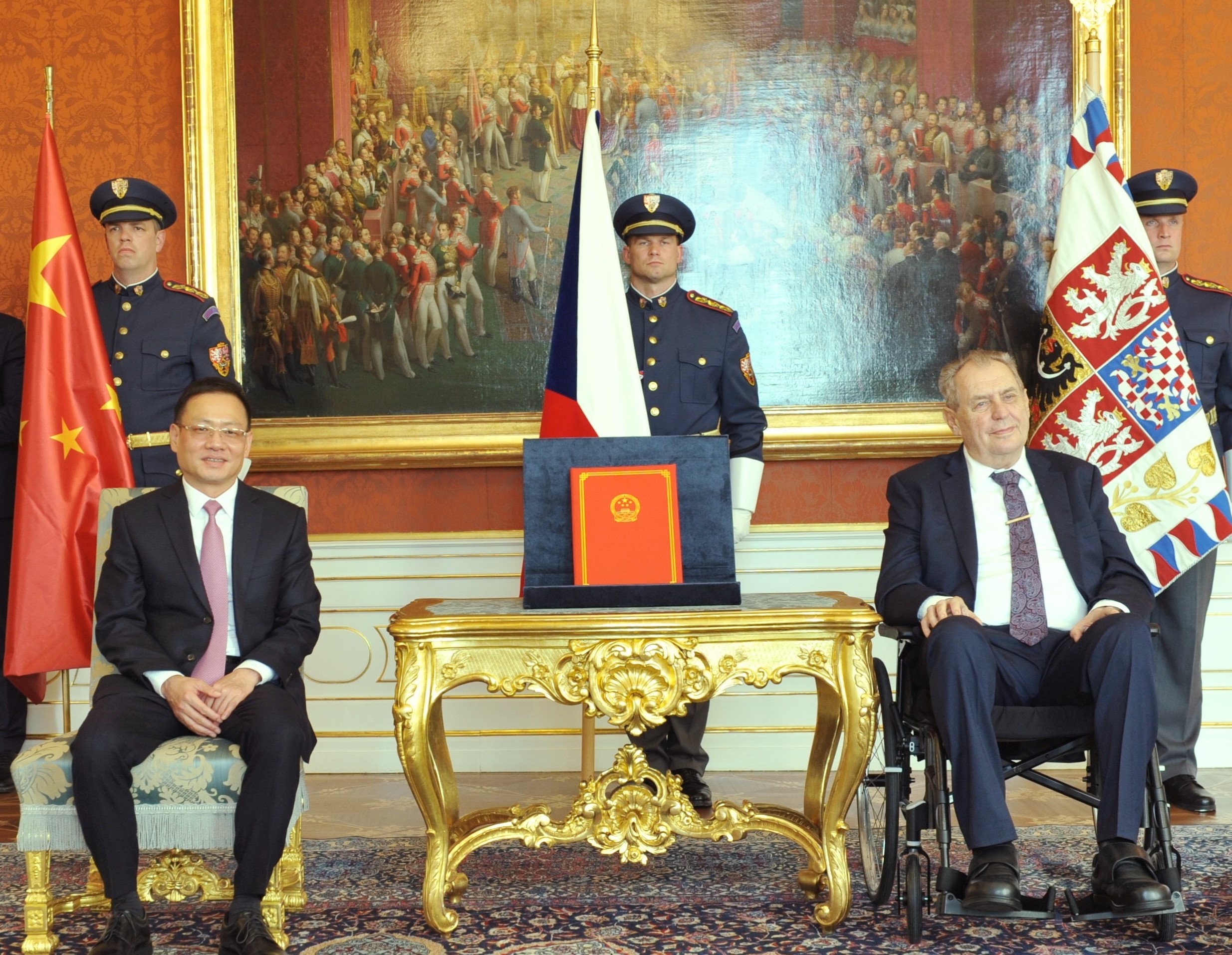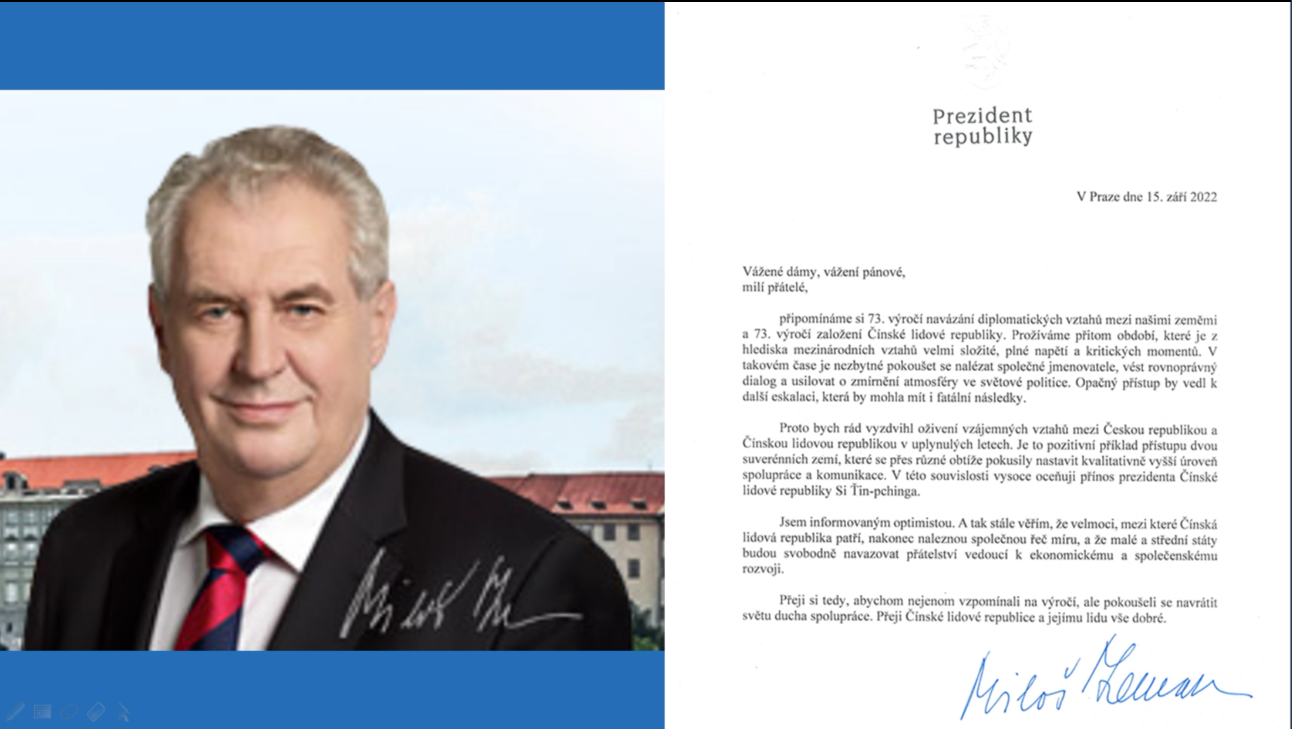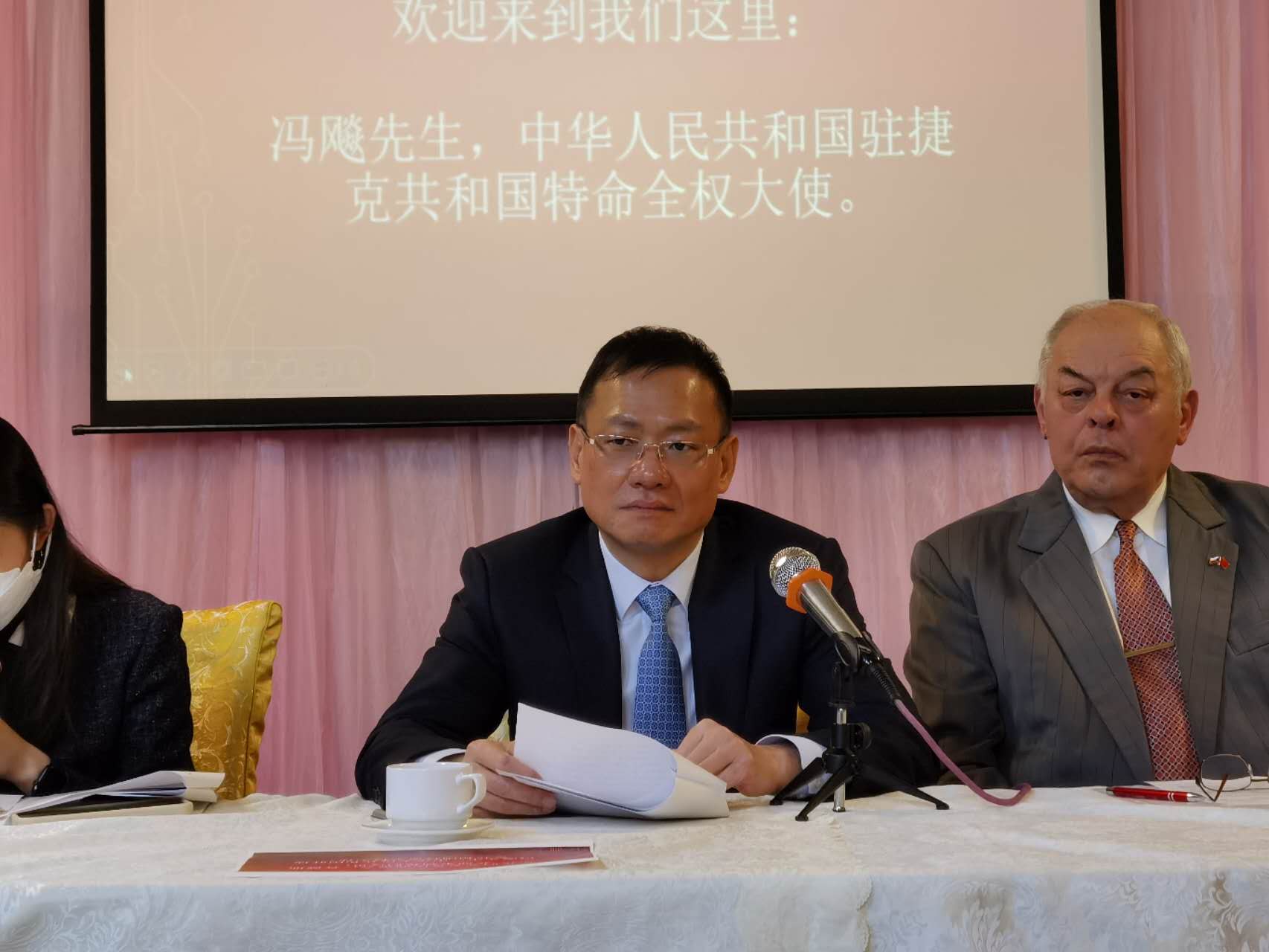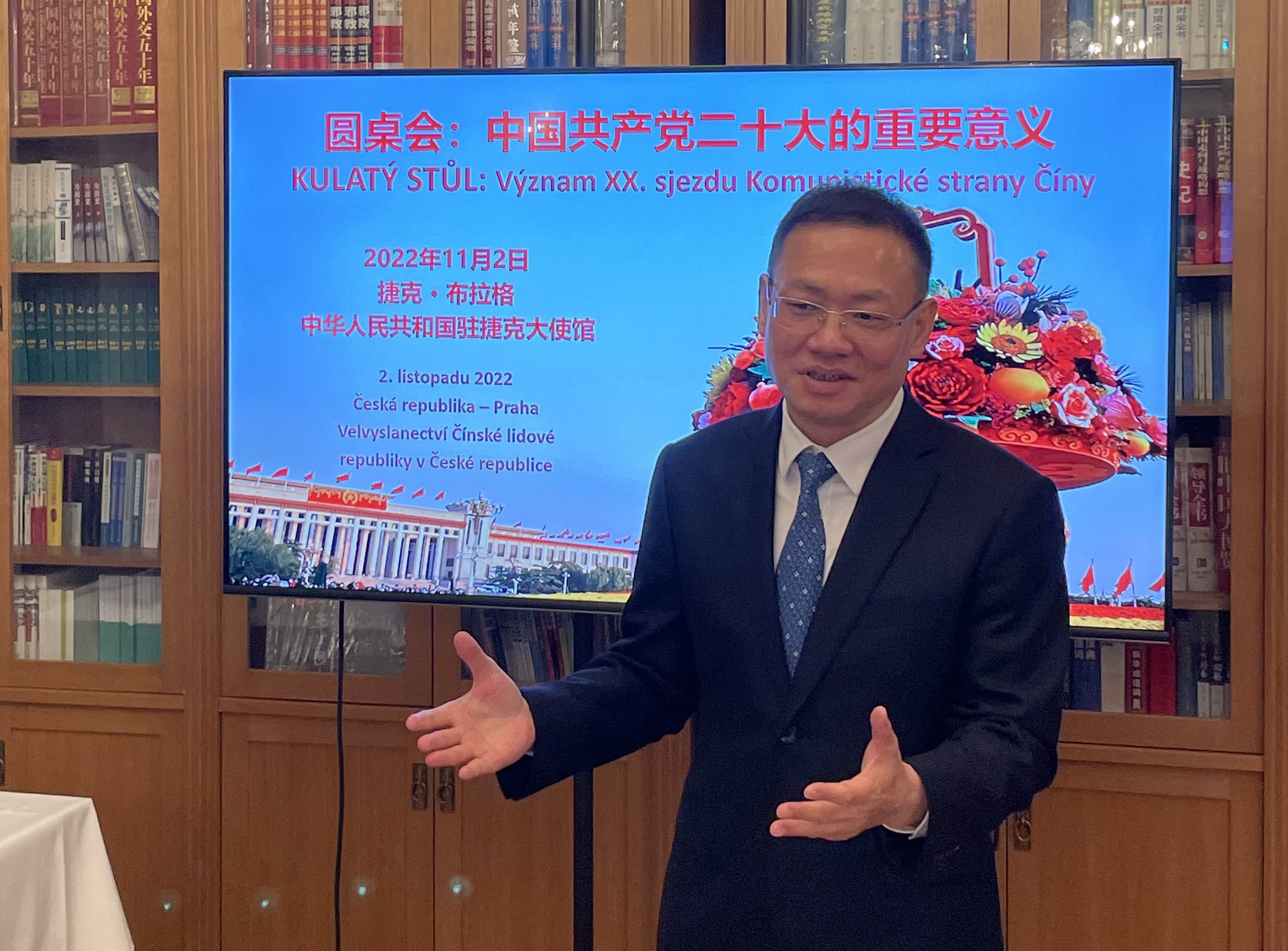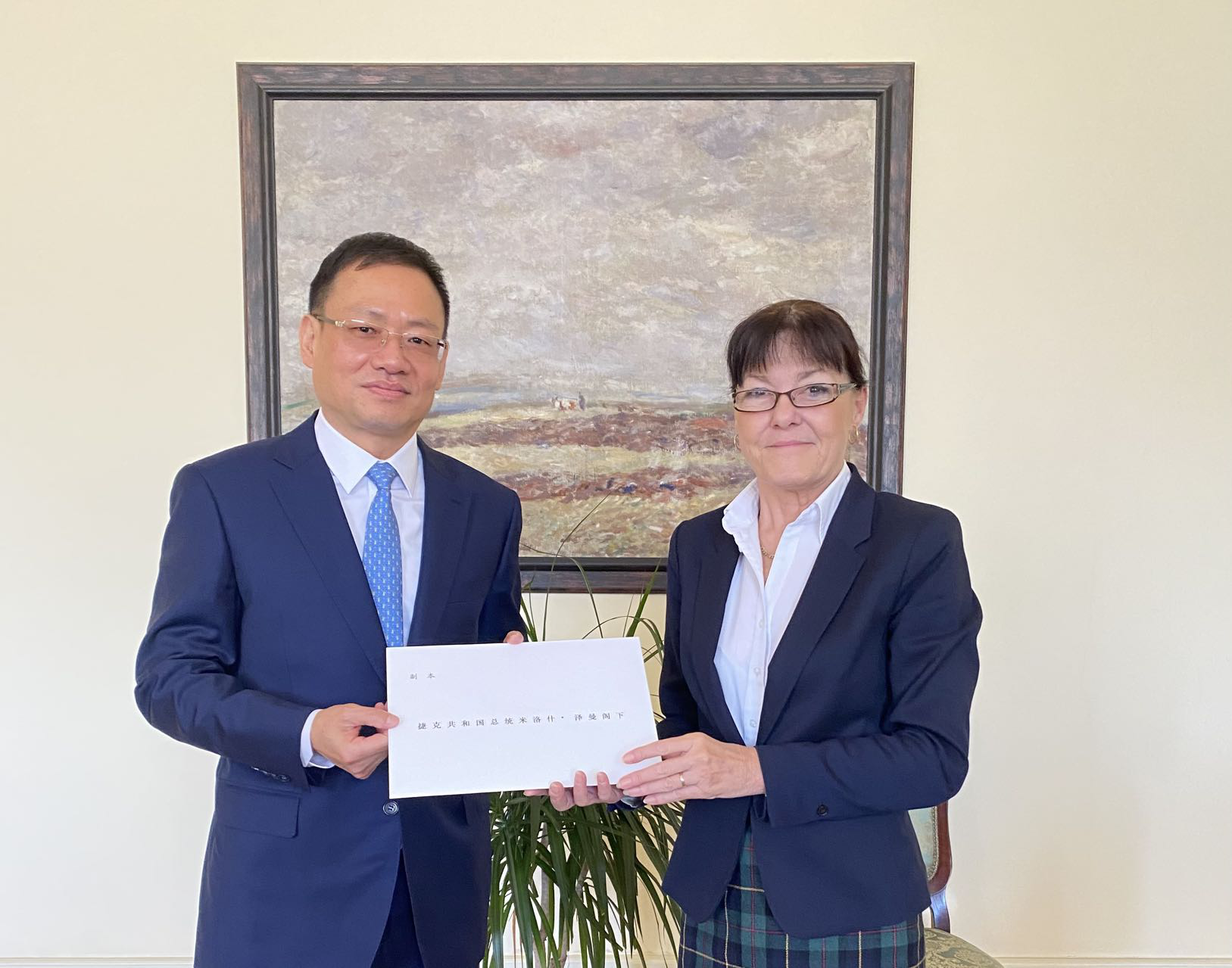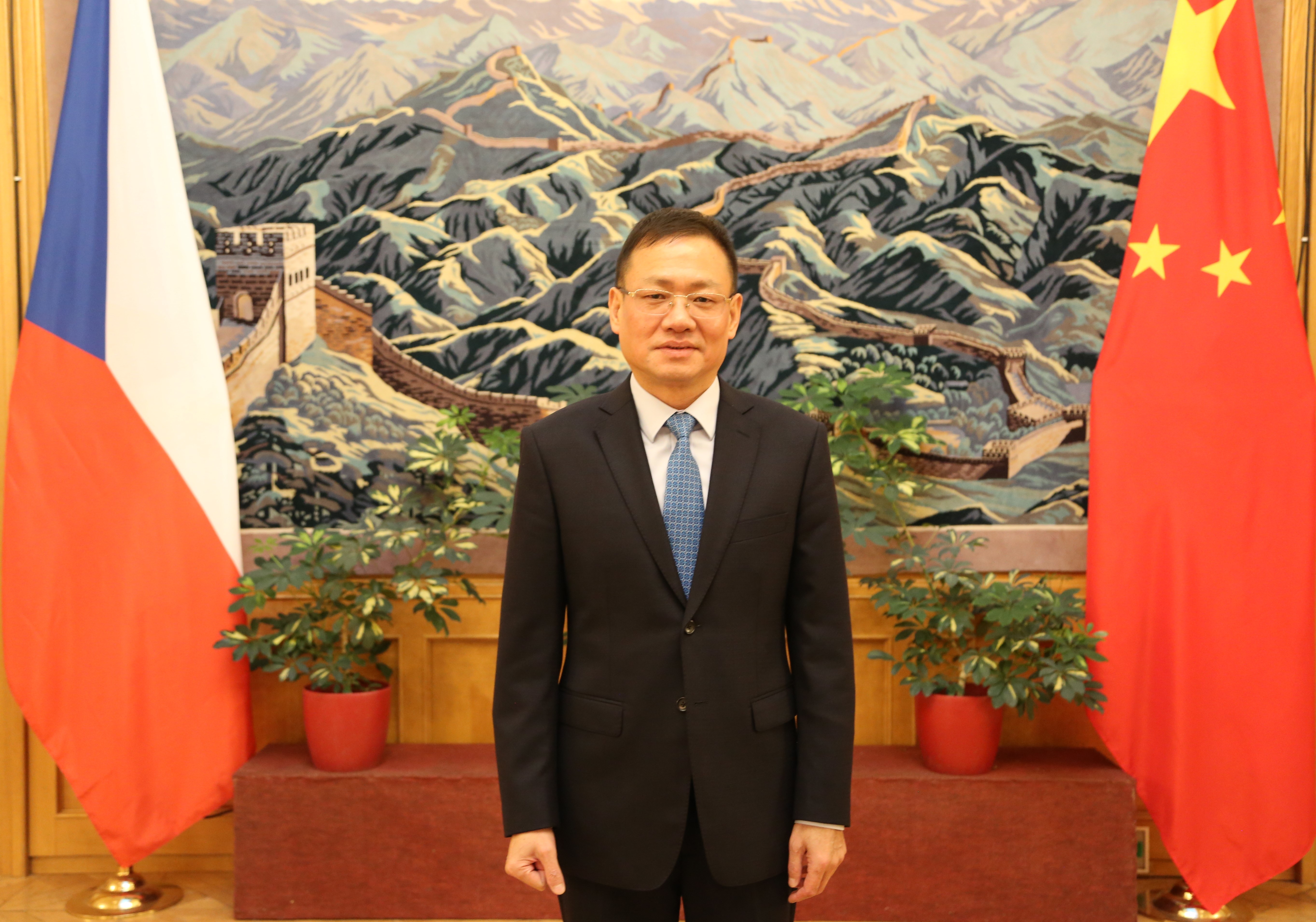| Foreign Ministry Spokesperson Liu Jianchao's Regular Press Conference on December 9, 2008 |
| 2008-12-10 19:29 |
| On December 9, 2008, Foreign Ministry Spokesperson Liu Jianchao held a regular press conference and answered questions on China-France relations, the Six-Party Talks, the situation in Zimbabwe, and etc. Liu Jianchao: Good afternoon, ladies and gentlemen. Now the floor is open. Q: I'm wondering, after French President Nicolas Sarkozy met with the Dalai Lama, will China sanction France? A: Since the establishment of diplomatic relations between China and France 44 years ago, China has always viewed and handled the relationship from a strategic and long-term perspective, exerted the maximum of sincerity in developing its strategic partnership with France. Since it is a strategic partnership, both parties should fully consider and accommodate each other's major concerns on core interests. This is the essence of a strategic partnership. To take actions that undermine the other's core interests will definitely impair the development of bilateral relations. From this standpoint, China has never done anything that undermines the interests of France. China is not happy to see the current difficulties in its relations with France. Neither are the overwhelming majorities of the French people, who are advocating the development of China-France friendship and cooperation. Since things have happened, we need to find a solution. The existing difficulties in China-France relations at present are not caused by China, but by France. It's therefore the latter's sheer responsibility. We urge France to take responsibility and concrete measures to correct its erroneous practice and create favorable conditions and atmosphere for the development of China-France relations, which is conducive to the long-term interests of the people of two countries. Q: In Zimbabwe, President Mugabe is under great pressure of resignation, the United States Secretary of State Rice and a number of African countries have openly opposed him. What is China's position on this issue? Will China continue to support Mugabe, or think that he should resign? A: On the issue of Zimbabwe, I would like to emphasize that China shares the concern of the international community over the current deteriorating economic and social situation there. In order to help the people of Zimbabwe to overcome the current difficulties, China is actively considering providing the emergency humanitarian assistance, including food, to Zimbabwe, and making sure they will be delivered to the Zimbabwean people at an early date. China believes that dialogue and negotiation are the only correct paths to the settlement of the issue of Zimbabwe. Thanks to the active mediation of Africa, various parties in Zimbabwe signed the agreement on the formation of a government of national unity on September 15, and reached consensus in late November on the text of No. 19 constitution amendment concerning the framework of the new government, which has laid the foundation for a political solution to the Zimbabwe question. Zimbabwe is China's friend, and the people of the two countries enjoy traditional friendship. China sincerely hopes that the related parties in Zimbabwe could proceed from the interests of the nation and its people, set up the national unity government as soon as possible so that the country could shake off its current difficulties, and embark on the track of stability and development. China also supports Africa in intensifying its mediation efforts. We are willing to join the international community to continue to help and support Zimbabwe to safeguard stability, achieve national unity and restore economic development. Q: I would like to ask what kind of efforts you hope France to make to restore friendship with China. Will China impose any economic sanctions upon French businesses? A: Where the China-France relations will go depends crucially on the action of France. France should proceed earnestly from the overall interests of the relations between the two countries and the two peoples, fully recognize the damage to the China-France and China-Europe relations caused by the practice of its leader who insisted on meeting with the Dalai Lama. France should take seriously China's concerns and solemn position on its core interests, take concrete actions to correct its erroneous actions on Tibet-related issues and eliminate the negative impact. We look forward to France abiding by its commitment to the One-China Principle to match its words with deeds. As for your second question, we believe that the leader of France insisting on meeting with the Dalai Lama has severely undermined the sound atmosphere for China-France cooperation, and devastated the political basis of China-France relations, which has inevitably inflicted a negative impact on the atmosphere for the economic cooperation and trade between the two parties as well as that in other fields. It is imperative at present that France should take concrete measures to create favorable conditions and atmosphere for the development of China-France relations and China-France cooperation in various fields. France should have sufficient wisdom to know how to correct its wrong doing. Q: A Chinese Olympic torch bearer was attacked by a US citizen during the torch relay in Paris in April. Is the current China-France relationship worse than that in April? A: What happened during the Olympic torch relay in Paris in April and the difficulties in the current China-France relations have similarities and dissimilarities. What's in common is that a few people in France have undermined the core interest of China. What is different is that the French leader insisted on meeting Dalai regardless of China's repeated representations and goodwill advices, which has undermined China-France relations. Such results have brought severe difficulties to bilateral relations, and also aroused strong dissatisfaction among the Chinese people. It is time for France to take correct actions. Q: I have two questions. Firstly, leaders of other countries have also met with the Dalai Lama. Why does China react so strongly to the French President's meeting with the Dalai Lama? My second question is about the Six-Party Talks. I was wondering what impact will the DPRK's refusal to deal with Japan have on the Talks? A: About your first question, I am afraid the impression you have is not correct. On the issue of foreign leaders' meeting with Dalai, China's position is consistent and clear. We are opposed to any foreign leader meeting with Dalai, supporting or conniving with Dalai's activities to split China. China has always made its solemn position clear to the relevant countries by different means in such cases. Therefore, there is no such thing that France has been singled out. The French President's high-profile meeting with Dalai has severely impaired the core interest of China, gravely hurt the feelings of the Chinese people and undermined China-France relations. China's reaction is absolutely justified. We urge France to exert sincerity and take concrete actions to mend the current China-France relations. About your second question, heads of the delegations to the Six-Party Talks started their meeting yesterday afternoon. It has been a long-term practice for the Six-party Talks to have both the meetings of heads of delegations and close communications and contacts between the parties. The heads' meeting officially started at 3pm yesterday. The six parties had in-depth exchange of views on issues such as nuclear verification, implementation of the remaining actions of the second phase and establishment of the Northeast Asia peace and security mechanism. We hope that parties of the Talks, with their patience and wisdom, can reach a consensus based on the principle of "commitment to commitment, action to action" and "phase-in implementations" and press ahead with the Six-Party Talks. It is our hope that the six parties can work together towards the goal of a nuclear-free Korean Peninsular. Q:About the Six-Party Talks, China has been asked to produce a document on the issue of verification, which is the focus of discussion. Can you tell us China's stance on the issue of verification? What role would China like to play in that process? Secondly, China, Japan and ROK will hold a summit in Japan at the weekend. What's China's expectation of the meeting? Especially now China and Japan are at some disputes over the Diaoyu Island issue, what's China's stance on this issue? A: About your first question, the issue of verification is one of the issues parties are focusing their discussion on at the Six-Party Talks. China and other parties have all made some proposals on this issue and expressed their respective positions and concerns. I believe this issue will continue being discussed during the Talks. About your second question, the leaders of the three countries will exchange views on the trilateral cooperation, the current international economic and financial issues, and regional and international issues of common concern at this China-Japan-ROK Summit. The trilateral cooperation among China, Japan and ROK is an important part of the whole East Asia regional cooperation. We expect and believe that this summit will yield positive results, further intensify the cooperation among the three countries, consolidate and develop the trilateral relationship. It will also help to intensify East Asia cooperation and promote peace, stability and development in Northeast Asia and East Asia. As to the specific issue you have mentioned, about the Chinese marine surveillance ships conducting usual patrol in the waters within China's jurisdiction. I elaborated on China's position on it yesterday. The Diaoyu Island and its adjacent islets have been China's inalienable territory since ancient times. The activities of China's marine surveillance ships are completely legitimate and undisputable. I do not think this issue will affect the up-coming China-Japan-ROK Summit. Q: Will there be any reactions from the Chinese side since Dalai also visited Poland and met with the Polish Prime Minister? Will the Chinese Government also take some measures against Poland in view of the measures taken against France? A: I have just stressed that China's position on the issue of foreign leaders meeting with the Dalai is resolute. We have made solemn representations with the Polish side on the Polish leader meeting with the Dalai Lama. We expect Poland to value the friendly cooperation with China and refrain from creating difficulties for the development of the friendly relationship between the two countries. Q: Two questions. First, there's a Xinhua commentary that says China's human rights situation is at its best right now. Could you comment on that? Can you comment on China's human rights situation at the moment? Second, the Dong-A Ilbo, a South Korean Newspaper, reported that 250 Chinese businesses were ordered to leave an economic zone in North Korea by the end of last month. Some businesses have already left and some have not yet. Can you confirm this? A: This year is the 60th anniversary of the Universal Declaration of Human Rights. Some Chinese media have covered the event, reviewing the important achievements China has made in human rights during these years. I think the progress of China's human rights cause should be viewed comprehensively and within the historic context. I believe the Xinhua commentary is a faithful reflection of the development of China's human rights cause. About your second question, I have not received any information in this regard and can not confirm the report you mentioned. China and the DPRK have maintained normal friendly exchanges including economic exchanges and trade. Q: Regarding Zimbabwe, you said just now that China is willing to strengthen the mediation. What are the specific measures that China has been considering or has already taken? Will China mediate in other crisis there in Africa, for instance the Congo and Darfour issues? A: I said just now that China expressed its concern over the economic and social situation in Zimbabwe and the difficulties that Zimbabwe is facing, and that China is ready to provide urgent humanitarian aid to Zimbabwe. China supports Africa in carrying out continuous mediation, and is willing to join the international community to offer necessary assistance to Zimbabwe with a view to maintaining national stability and solidarity, and restoring its economic development. As a close friend of Africa, China follows closely what has happened on the African continent, as well as its peace, stability and development. We sincerely hope to see a peaceful Africa which enjoys development. China will continue to promote the friendly cooperation with the African countries and the development of the neo comprehensive strategic partnership with Africa according to the consensus that has been reached. Q: Violent conflicts between students and police have swept through Greece lately, which led to riots in some cities. Does China have any comment? Are there any overseas Chinese injured in the riots? A: China expressed its concern over the riots that happened lately in Greece. We believe that the Greek Government will settle the problem properly and restore social order. The Embassy of China in Greece is making inquiries through various channels. Up to now, we haven't received any report of Chinese businesses or students being attacked in the riots. We hope that the Greek Government will take effective measures to ensure the safety of Chinese citizens and businesses in Greece. Q:Since French President Sarkozy met with the Dalai Lama, the Chinese people have lodged a wave of protest on line. There are also some French people calling for the boycott of Chinese goods. Do you think the tension between the two peoples will intensify the already strained China-France relations, and further affect the economic and trade relations between the two countries? A: What you have talked about shows exactly how significant the responsibility of a nation leader is for the development of bilateral relations. Leaders of all countries should have a correct attitude responsible for history and the feelings of its own people and those in the country involved. Therefore, on the issue at point, I believe the French side should carry out its obligations, view and handle China-France relations properly, and take concrete measures so as to create essential atmosphere and conditions for the improvement and development of the China-France relations. Q: I would like to know the details about China's humanitarian aids to Zimbabwe, for example, when will the aids arrive? What are included in the aids? Will China directly hand over the aids to the Zimbabwe Government? If so, how do you ensure those aids will reach the people in need? My second question, you said Zimbabwean is a friend of China, is President Mugabe also a friend of China? Some African countries ask him to step down to solve the current crisis, does China hold the same view? The third question, did China have communications with Pakistan over the past weeks on Pakistan's possible involvement in the Mumbai terrorist attack? A: China is actively considering providing humanitarian aids, including foods, to Zimbabwe. Relevant details are still under arrangement. I want to stress two points. First, the purpose of providing humanitarian aids is to mitigate the current difficulties that Zimbabwe is facing. Second, those aids should reach the Zimbabwean people. On your second question, how to cope with the current domestic situation is Zimbabwe's internal affairs, with which China will not interfere. The South African countries and African Union are mediating to deal with the deteriorated economic and social situation in Zimbabwe. We support African countries' mediation efforts, and hope their efforts make positive progress. We also hope the parties concerned in Zimbabwe put the interests of the country and people on priority and reach consensus on the forming of government as early as possible, for it is in the interests of Zimbabwean people and the development of Zimbabwe. On your third question, the terrorist attack in Mumbai has significant international impact, and affected the situation in South Asia as well. China has been communicating with countries concerned in the region including India and Pakistan. Q: My question is about the Chinese marine surveillance ships entering the waters near the Diaoyu Islands. Since the region is so sensitive, why does China take proactive actions in the region? Will the actions affect Sino-Japanese relations? If it is a usual patrol, does China plan to send the same kind of ships to Diaoyu Islands in the future? A: We can not accept the accusation that China takes proactive actions in the region. China does not see its usual patrol in waters within China's jurisdiction as proactive. It is up to China to deicide when to send marine surveillance ships to patrol the region again. If there are no more questions, thanks for coming. See you.
|
|
||||||||||||||||
| ||||||||||||||||
|
|
||||||||||||||||

